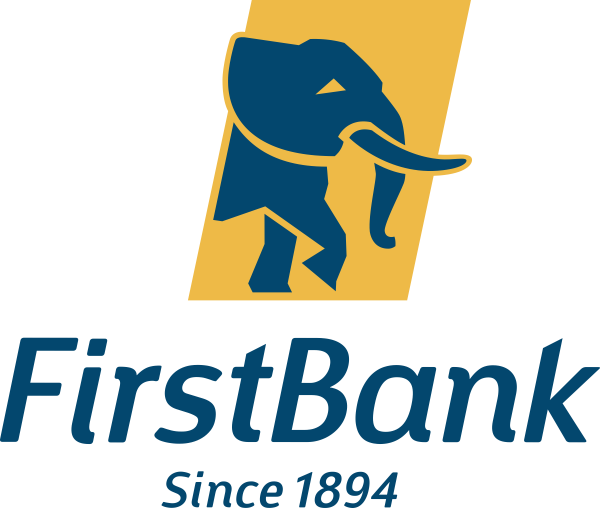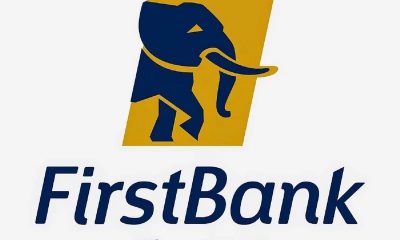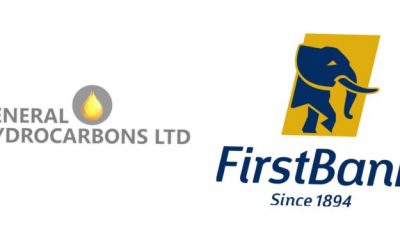Banking
Moody’s Affirms First Bank’s Deposit Ratings, Predicts Drop in NPL Ratio

By Dipo Olowookere
The B2/Not Prime long-term and short-term local currency deposit ratings of First Bank of Nigeria Limited have been affirmed by Moody’s Investors Service.
In a statement issued on Tuesday and obtained by Business Post, the rating agency said it also affirmed the lender’s B3/Not Prime long-term and short-term foreign currency deposit ratings.
At the same time, Moody’s has affirmed the bank’s B2/Not Prime long-term and short-term, local currency and foreign currency Counterparty Risk Ratings (CRR) and its baseline credit assessment (BCA) and adjusted BCA at b3, while changing the outlook on long-term ratings to stable from negative.
Moody’s explained that the affirmation of First Bank’s ratings was driven by the bank’s moderate capital, resilient pre-provision profitability and a stable funding profile. These strengths are counterbalanced by lender’s still high stock of nonperforming loans (NPLs) compared to other large Nigerian banks, reflecting relatively modest progress in reducing its NPLs.
It also noted that the decision to change the outlook to stable from negative reflects Moody’s view that, while NPLs remain elevated, downside risks to asset quality have considerably diminished following remedial steps taken by the bank and should slowly decline going forward.
In particular, Moody’s noted emphasised that First Bank reduced its foreign currency denominated loans and efforts are underway to reduce single-name concentrations, adding that the improving operating environment, especially in relation to oil prices and the bank’s significant exposure to the upstream oil and gas sector, will also help prevent formation of large stocks of new NPLs.
Moody’s said it expects that the bank’s NPL ratio to reduce further, most plausibly at a slow pace over several quarters, as the bank hopes to resolve its current large problematic loans gradually because of the long time it tends to take to foreclose on collateral in Nigeria.
Moody’s said First Bank benefits from its modest capital, with a ratio of tangible common equity to risk weighted assets at 12.2 percent as of December 2017.
The bank’s pre-provision profitability remains resilient at 4.2 percent at year-end 2017, with Moody’s expecting the lender to maintain its solid pre-provision profitability, supported by its high net interest margins and non-interest income that is benefiting from the bank’s growing alternative channels strategy.
In addition, the rating agency assesses the bank’s funding profile as stable, supported by its large stock of liquid assets and moderate reliance on market funding.
However, First Bank’s strengths are moderated by its high NPLs compared to its Nigerian peers (Nigerian large banks). Despite improvements in its NPLs, the gap between the bank’s NPLs at 20.5 percent as of June 2018 and that of its local peers, at an average of 5.6 percent, remains wide.
“The high NPLs reflect the bank’s relatively still large sectoral and single-name concentration risks and its legacy exposure to the oil and gas industry which created high NPLs during the oil price downturn in 2016.
“Also, the bank’s foreign currency loan book remains high at 48 percent of its total loans as of June 2018,” the statement said.
It added that First Bank continues to make progress in improving its asset quality as the NPL ratio reduced to 20.5 percent as of June 2018, from a peak of 24.2 percent at year-end 2016.
Moody’s says it expects the NPL ratio to gradually fall to 12-15 percent range within the next 12-18 months, driven largely by the on-going balance sheet de-risking and a more favourable operating environment, which will help prevent the formation of new impaired loans.
The bank reduced its foreign currency loan book by 36 percent between 2015 and 2017, adjusted for naira devaluation. The better operating environment, including the current high oil prices, will support performance of First Bank’s large exposure to the upstream oil and gas sector because a majority of these exposures have been restructured on assumption of lower oil price.
The rating agency also expects the lender to benefit from its enhanced risk management governance that resulted in tighter controls and better underwriting standards.
“Moody’s expects better risk management processes will improve the quality of FBN’s new loans and reduce concentration risks.
“First Bank’s loan book, which contracted 7 percent between June 2018 and year-end 2017, will also help contain new NPL formation.
“However, Moody’s expects a moderate recovery in loan growth in the next 12-18 months. The bank increased its ratio of provisions to NPLs to 82 percent, which is now in line with global peers,” it said.
The rating agency noted the bank’s improvements in its foreign currency liquidity. By cutting back foreign-currency lending and paying off some its borrowings, saying First Bank will improve the coverage of its foreign currency borrowings by liquid foreign currency assets (cash and bank balances, loans due from banks and securities for trading) to about 2.5x from 1.9x at year-end 2017.
Moody’s stressed that the bank’s ratings could be upgraded if its asset risk metrics continue to improve toward the median of other large Nigerian banks, adding that the ratings could also be upgraded if Nigeria’s sovereign rating is upgraded.
However, it warned that the ratings could be downgraded if there is a deterioration of the bank’s asset quality metrics that would place negative pressure on its earnings and capital buffers.
“A downgrade of Nigeria’s sovereign rating would also exert pressure on the bank’s ratings,” the statement said.
Banking
All Set for Second HerFidelity Apprenticeship Programme

By Modupe Gbadeyanka
Registration for the second HerFidelity Apprenticeship Programme (HAP 2.0) organised by Fidelity Bank Plc has commenced.
The Divisional Head of Product Development at Fidelity Bank, Mr Osita Ede, informed newsmen that the initiative was designed to empower women with sustainable entrepreneurship skills.
The lender created the flagship women-empowerment initiative to equip women with practical, income‑generating skills and structured pathways to entrepreneurship.
“HerFidelity Apprenticeship Programme 2.0 reflects our commitment to continuous improvement. Having evaluated feedback from the first edition, we have returned with stronger partnerships and deeper mentorship programmes to ensure that women acquire not just skills, but sustainable economic opportunities,” he said.
“At the heart of the programme is guided, real‑world learning. Participants will undergo intensive apprenticeship training under reputable institutions and industry experts across select fields such as hair styling, shoe making, auto mechatronics, and interior decoration,” Mr Ede added.
He noted that HerFidelity Apprenticeship Programme 2.0 goes beyond skills acquisition by offering participants a wide range of business advisory services. These include business and financial literacy training, mentorship support throughout the apprenticeship journey, access to Fidelity Bank’s women‑focused and SME financial solutions, as well as guidance on business formalisation and growth strategies.
Further emphasising the bank’s vision, Mr Ede said, “By integrating structured mentorship with entrepreneurial development, Fidelity Bank is positioning women not just as trainees, but as future employers, innovators, and economic contributors within their communities. This aligns with our mandate to help individuals grow, businesses thrive, and economies prosper.”
Banking
The Alternative Bank Opens New Branch in Ondo

By Modupe Gbadeyanka
A new branch of The Alternative Bank (AltBank) has been opened in Ondo State as part of the expansion drive of the financial institution.
A statement from the company disclosed that the new branch would support export-oriented agribusinesses through Letters of Credit and commodity-backed trade finance, ensuring that local producers can scale beyond state borders.
For SMEs, the bank is introducing robust payment rails, asset financing for equipment and inventory, and supply chain-backed facilities that strengthen working capital without trapping businesses in interest-based debt cycles.
The Governor of Ondo State, Mr Lucky Aiyedatiwa, represented by his Chief of
Staff, Mr Olusegun Omojuwa, at the commissioning of the branch, underscored the importance of financial institutions in economic development.
“The pivotal role of financial institutions to economic growth and development of any economy cannot be overemphasised. It provides access to capital, supporting small and medium-scale enterprises and encouraging savings.
“Therefore, I have no doubt in my mind that the presence of The Alternative Bank in Ondo State will deepen financial services, create employment opportunities and stimulate economic activities across various sectors,” he said.
In her remarks, the Executive Director for Commercial and Institutional Banking (Lagos and South West) at The Alternative Bank, Mrs Korede Demola-Adeniyi, commended the state government’s leadership and outlined the lender’s long-term vision for Ondo State.
“As Ondo State steps into its next fifty years, and into the future anchored on the sustainable development championed during the recent anniversary celebrations, The Alternative Bank is here to be the financial engine for that vision. We didn’t come to Akure to hang banners. We came to fund work, farms, shops, and factories.”
With Ondo State’s economy anchored largely on agriculture, particularly cocoa production, poultry farming, and other cash crops, alongside a growing SME and trade ecosystem, AltBank is deploying sector-specific financing solutions tailored to these strengths.
For cocoa aggregators, processors and poultry operators, the bank will provide production financing, facility expansion support, machinery lease structures, and structured trade facilities under its joint venture and cost-plus financing models, with transaction cycles of up to 180 days for commodity trades and longer-term structured asset financing for equipment and infrastructure.
The organisation is a notable national non-interest bank with a physical network now surpassing 170 locations, deploying capital to solve real-world challenges through initiatives such as the Mata Zalla project, which saw to the training of hundreds of women as electric tricycle drivers and mechanics.
Banking
Recapitalisation: 20 Nigerian Banks Now Fully Compliant—Cardoso

By Adedapo Adesanya
The Governor of the Central Bank of Nigeria (CBN), Mr Yemi Cardoso, announced on Tuesday that the country’s banking sector is making strong progress in the recapitalisation drive, with 20 banks now fully compliant.
Mr Cardoso disclosed this during a press conference at the first Monetary Policy Committee (MPC) meeting of 2026, where he also highlighted positive developments in the nation’s foreign reserves.
On March 28, 2024, the apex bank announced an increase in the minimum capital requirements for commercial banks with international licences to N500 billion.
National and regional financial institutions’ capital bases were pegged at N200 billion and N50 billion, respectively.
Also, CBN raised the merchant bank minimum capital requirement to N50 billion for national licence holders.
The banking regulator said the new capital base for national and regional non-interest banks is N20 billion and N10 billion, respectively.
To meet the minimum capital requirements, CBN advised banks to consider the injection of “fresh equity capital through private placements, rights issue and/or offer for subscription”.
Following the development, several banks announced plans to raise funds through share and bond issuances.
In January, Zenith Bank said it had raised N350.46 billion through rights issue and public offer to meet the CBN minimum capital requirement.
Guaranty Trust Holding Company Plc (GTCO), on July 4, said it had successfully priced its fully marketed offering on the London Stock Exchange (LSE).
In September, the CBN governor said 14 banks fully met their recapitalisation requirements — up from eight banks in July.
With one month to the central bank’s March 31, 2026, recapitalisation deadline, 13 Nigerian lenders are yet to cross the finish line.
Additionally, the governor noted that 33 banks have raised funds as part of the ongoing recapitalisation exercise, signalling robust capital mobilisation across the sector.
He stated that gross foreign reserves have climbed to a 13-year high of $50.4 billion as of mid-February 2026.
-

 Feature/OPED6 years ago
Feature/OPED6 years agoDavos was Different this year
-
Travel/Tourism10 years ago
Lagos Seals Western Lodge Hotel In Ikorodu
-

 Showbiz3 years ago
Showbiz3 years agoEstranged Lover Releases Videos of Empress Njamah Bathing
-

 Banking8 years ago
Banking8 years agoSort Codes of GTBank Branches in Nigeria
-

 Economy3 years ago
Economy3 years agoSubsidy Removal: CNG at N130 Per Litre Cheaper Than Petrol—IPMAN
-

 Banking3 years ago
Banking3 years agoSort Codes of UBA Branches in Nigeria
-

 Banking3 years ago
Banking3 years agoFirst Bank Announces Planned Downtime
-

 Sports3 years ago
Sports3 years agoHighest Paid Nigerian Footballer – How Much Do Nigerian Footballers Earn






















